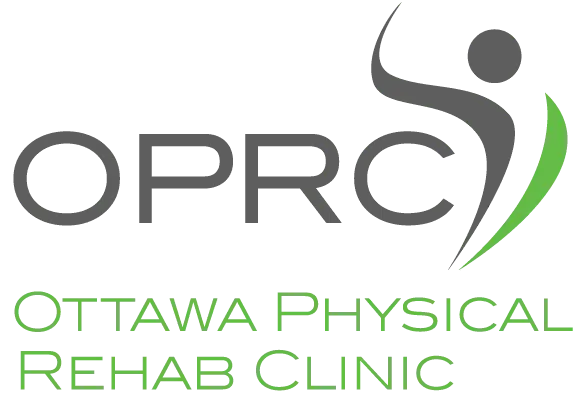
Physiotherapy is often associated with rehabilitation from injuries, but its benefits extend far beyond mere recovery. It plays a pivotal role in enhancing overall fitness levels, preventing injuries, and even boosting athletic performance. By integrating physiotherapy into a fitness routine, individuals can optimize their physical capabilities and achieve their health goals more efficiently. In this blog, we will explore how physiotherapy supports various aspects of fitness, from injury prevention and recovery to enhancing performance and assisting with diverse fitness objectives.
How Physiotherapy Helps Improve Overall Fitness
A well-rounded fitness regimen benefits significantly from the inclusion of physiotherapy, which offers personalized strategies to enhance physical performance and health.
- Injury Risk Assessment: Physiotherapists can evaluate your body mechanics and identify potential areas of weakness or imbalance. This assessment helps tailor exercises that strengthen these areas, reducing the risk of future injuries.
- Flexibility Improvement: Through targeted stretching and mobilization techniques, physiotherapy can significantly enhance flexibility. Improved flexibility aids in better performance across various fitness activities and reduces the likelihood of strains.
- Strength Building: Physiotherapists design specific strength-training programs that cater to individual needs. These programs focus on core stability and muscle endurance, essential for both athletic pursuits and everyday activities.
- Posture Correction: Poor posture can lead to chronic pain and reduced physical efficiency. Physiotherapists provide exercises and ergonomic advice to improve posture, which can enhance performance and prevent discomfort.
- Balance and Coordination: By focusing on balance exercises, physiotherapy enhances proprioception and coordination, vital components for sports and daily functional activities.
- Customized Exercise Plans: Physiotherapy offers personalized exercise regimens aligned with individual fitness levels and goals, ensuring safe and effective progress.
- Pain Management: Techniques such as manual therapy and electrotherapy help manage and alleviate chronic pain, allowing individuals to pursue fitness activities without discomfort.
- Endurance Training: Physiotherapists can guide you in building cardiovascular endurance through tailored aerobic exercises, contributing to overall fitness enhancement.
Utilizing physiotherapy as part of a fitness strategy ensures a comprehensive approach to physical health. By addressing specific needs and goals, physiotherapy supports a sustainable and effective fitness journey.
Exercising Injury Prevention: The Role of Physiotherapy
Physiotherapy is integral in preventing injuries during exercise by focusing on the identification and correction of biomechanical inefficiencies. Physiotherapists conduct thorough assessments to pinpoint muscle imbalances, joint dysfunctions, and faulty movement patterns that may predispose individuals to injuries. By addressing these issues through targeted exercises and therapeutic interventions, physiotherapy enhances the body's resilience against common exercise-related injuries.
Injury prevention is also achieved by educating individuals on proper exercise techniques and body mechanics. Physiotherapists provide guidance on how to execute exercises correctly, emphasizing form and alignment to minimize the risk of injuries. Additionally, physiotherapy incorporates flexibility and strength training, which are crucial for maintaining joint stability and muscle balance. These components help in preparing the body for physical stressors encountered during exercise, reducing the likelihood of acute injuries such as sprains or strains.
Furthermore, physiotherapy can include the development of personalized warm-up and cool-down routines. These routines are designed to prepare the musculoskeletal system for activity and facilitate recovery, respectively, thus lowering the risk of overuse injuries. Through these comprehensive strategies, physiotherapy plays a vital role in safeguarding against injuries, enabling individuals to pursue their fitness goals with confidence and safety.
What Types of Fitness Goals Can Physiotherapy Help With?
Physiotherapy is not just for injury recovery; it is also a valuable tool for achieving a wide range of fitness goals. By offering personalized approaches, physiotherapy can support diverse objectives effectively.
- Weight Loss: Physiotherapists can design exercise programs that enhance calorie burning while considering any physical limitations, making weight loss sustainable and safe.
- Muscle Building: Through targeted strength training exercises, physiotherapy supports muscle hypertrophy and strength gains, tailored to individual capabilities and goals.
- Increased Flexibility: Specific stretching and mobilization techniques improve flexibility, aiding in better movement efficiency and reducing the risk of injury.
- Improved Cardiovascular Health: Physiotherapy can include aerobic training plans that boost cardiovascular endurance, essential for overall health and fitness.
- Enhanced Athletic Performance: By addressing weaknesses and optimizing physical capabilities, physiotherapy can elevate an athlete's performance in their specific sport.
- Functional Fitness: Physiotherapy focuses on exercises that enhance functional fitness, improving the ability to perform everyday activities with ease.
- Chronic Pain Management: For those dealing with chronic pain, physiotherapy offers strategies to manage pain, enabling participation in fitness activities without discomfort.
- Postural Improvement: Exercises aimed at correcting posture can alleviate related aches and enhance physical efficiency in various activities.
By tailoring approaches to meet specific fitness goals, physiotherapy provides a comprehensive framework for individuals seeking to improve their physical health. Whether aiming for weight loss, muscle gain, or enhanced performance, physiotherapy offers valuable support throughout the fitness journey.
How Often Should You See a Physiotherapist to Support Your Fitness Journey?
The frequency of physiotherapy sessions needed to support a fitness journey can vary significantly based on individual goals, current physical condition, and specific needs. For someone recovering from an injury or dealing with chronic pain, more frequent appointments, such as once or twice a week, might be necessary initially. This allows the physiotherapist to closely monitor progress and adjust treatments as needed to ensure effective recovery and regain of function.
For individuals focused on enhancing fitness levels or preventing injuries, bi-weekly or monthly sessions might suffice. These appointments can help maintain progress, address any emerging issues, and update exercise regimens to align with evolving fitness goals. Regular check-ins ensure that the exercise program remains effective and safe, providing ongoing support and motivation.
Athletes or highly active individuals may benefit from more frequent visits, especially during peak training periods or leading up to competitions. Physiotherapy can assist in optimizing performance and managing the increased physical demands placed on the body. In all cases, open communication with the physiotherapist is essential to determine the most appropriate visit frequency, ensuring that it aligns with personal fitness objectives and overall health needs.
How Physiotherapy Assists in Recovery After Intense Physical Activity
Recovery is a crucial aspect of any fitness routine, and physiotherapy provides effective strategies to facilitate this process, minimizing downtime and enhancing overall performance.
- Soft Tissue Therapy: Techniques like massage therapy help alleviate muscle tension and soreness, promoting faster recovery by increasing blood circulation and reducing inflammation.
- Stretching and Mobility Work: Post-workout stretching routines enhance flexibility and reduce muscle soreness, contributing to a more effective recovery phase.
- Hydrotherapy: The use of water-based exercises or treatments can soothe sore muscles and joints, providing relief and aiding the recovery process after intense physical activities.
- Cryotherapy: Cold therapy is used to reduce muscle swelling and inflammation, particularly useful after high-intensity workouts or sports activities.
- Electrotherapy: Modalities such as TENS (Transcutaneous Electrical Nerve Stimulation) can relieve pain and expedite recovery by stimulating nerves for therapeutic purposes.
- Active Recovery Exercises: Low-intensity exercises prescribed by physiotherapists help maintain mobility and prevent stiffness, facilitating a quicker return to regular activity levels.
- Nutritional Guidance: Physiotherapists often provide advice on nutrition and hydration, crucial components for muscle repair and recovery after strenuous workouts.
By incorporating these recovery strategies, physiotherapy ensures that individuals can maintain their fitness routines with minimal disruptions. The tailored approach to recovery not only supports physical restoration but also prepares the body for future exercise demands.
Supporting Fitness Alongside Physiotherapy: Essential Tips
Integrating physiotherapy with other fitness strategies can lead to improved physical health and performance. Here are some ways to complement physiotherapy efforts:
- Consistent Exercise Routine: Engage in regular physical activity tailored to your fitness level and goals. Consistency is key to making progress and maintaining physical health.
- Proper Nutrition: A balanced diet rich in essential nutrients supports muscle repair, energy levels, and overall fitness, complementing the physical benefits of physiotherapy.
- Sufficient Rest: Prioritize quality sleep and rest days to allow the body to recover and rebuild, essential for making fitness gains and avoiding burnout.
- Adequate Hydration: Staying well-hydrated is critical for optimal physical performance and recovery. It helps maintain energy and aids in the body's natural repair processes.
- Mindfulness and Stress Management: Practices such as yoga and meditation can enhance mental well-being and stress management, contributing to a more holistic fitness approach.
- Cross-Training: Incorporate a variety of exercises to target different muscle groups and improve overall fitness, reducing the risk of overuse injuries.
- Regular Self-Assessment: Monitor your progress and adjust your fitness routine as needed. Self-assessment helps in identifying areas of improvement and maintaining motivation.
By combining these practices with physiotherapy, individuals can maximize their fitness potential. A holistic approach ensures that all aspects of physical health are addressed, leading to sustainable improvements and long-term well-being.
Pain is No Longer in Control
Physiotherapy is a vital component of achieving and maintaining fitness, offering personalized strategies for injury prevention, performance enhancement, and recovery. By addressing individual needs and goals, physiotherapy supports a holistic approach to physical health.
People seeking to optimize their fitness journey are encouraged to book an appointment with Ottawa Physical Rehab Clinic. Our team is dedicated to providing personalized care and guidance to help you achieve your fitness objectives safely and effectively.

